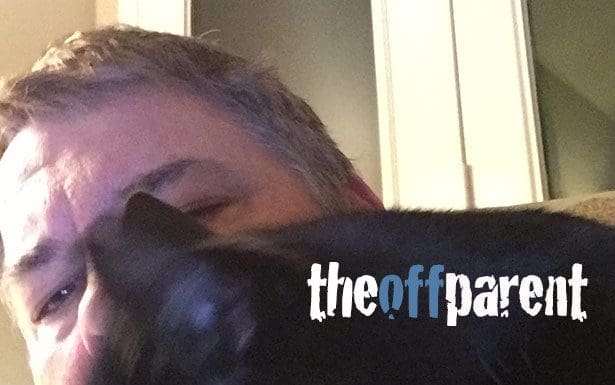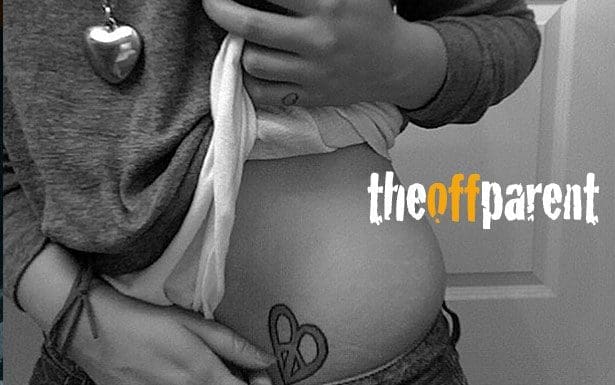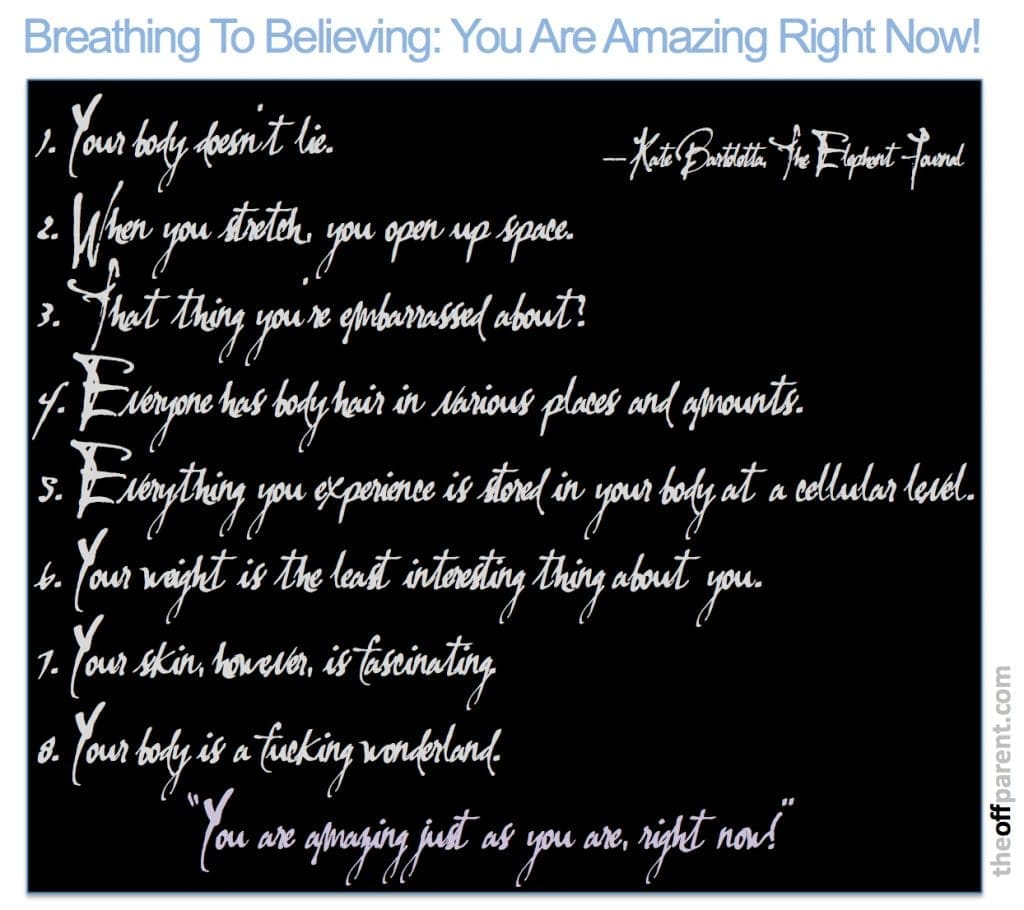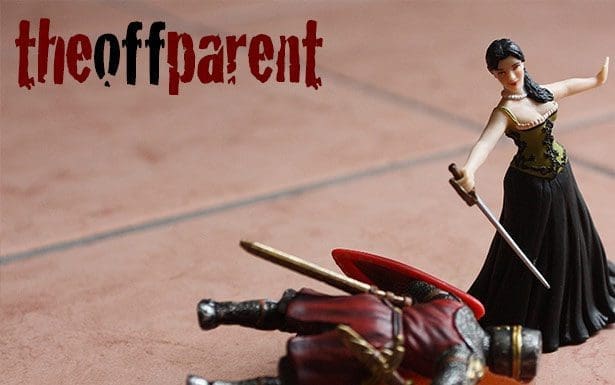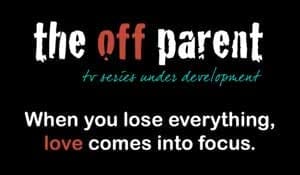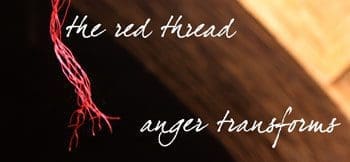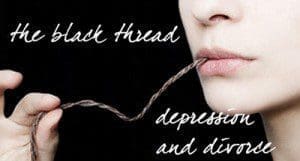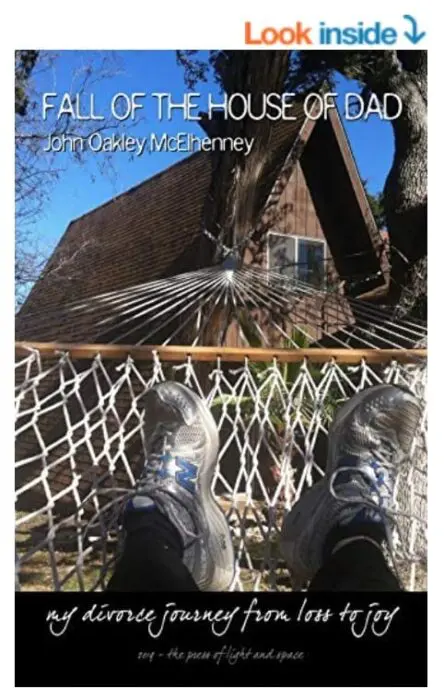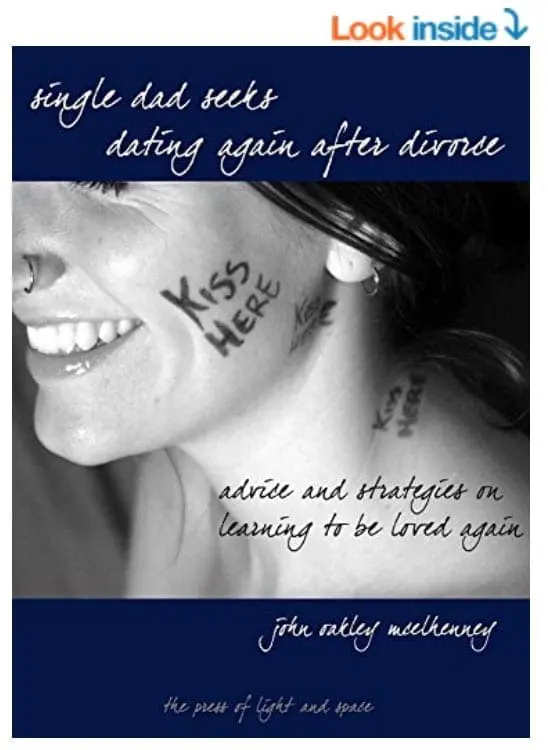Getting Quiet Again; Recovering from Another Fall Into Darkness

When you look back at depression, sometimes you laugh with swagger and bravado. You pound your chest, offer support, and if/when the sadness sneaks up on you again… Boom.
Quiet.
|
I am also aware that knowing how to heal is very different from the one-foot-in-front-of-another struggle it sometimes takes to keep going.
|
Well, that’s is my pattern anyway, and I’m coming out of a dark period of silence that spanned the holidays from Thanksgiving to New Years. I am committing to writing about it, journaling through my own recovery, and working to keep writing even when I’m not doing so well. Letting my facade down even at the risk of appearing to have failed at my own recovery.
This blog is not about depression, but in many ways it is. These stories represent what it feels like to get divorced, to fall apart, and to find ways of healing and getting strong again. I believe that I have some stories to tell that might be helpful, or more importantly, hopeful to someone going through a dark period themselves. THE BLACK THREAD posts about depression are missing much of the experience of actually being down. That’s because I clam up. Rather than talk about or reveal my warped thoughts, I STFU. (Shut the F*** Up)
I am also aware that knowing how to heal is very different from the one-foot-in-front-of-another struggle it sometimes takes to keep going. The alternatives are death, going to jail, aloneness, homelessness. I don’t know what’s on the other side of my darkest fear, but I suppose it has something to do with being discovered to be a fraud. As if all the work I’ve done to reach this peace, is destroyed if I get depressed again. That’s not the truth.
If I write about divorce, depression, and recovery and then I again, fall into a pattern of depression, I have a fear that this means I have failed and that my work here is somehow wrong or bad. I do know, today, that this is not the truth. But I am only able to have awareness of the value of my writing when I’m on this side of the black thread. When I am deep in my self-suffering, I want to delete this entire site. I even have thoughts, unrealized, of deleting myself. Bad idea. Bad thoughts. Hard time.
What I have shared here, has gotten me through some of the hardest times. And in uncovering, and un-quieting myself to explore what’s happening within me again, is yet another step in pealing the onion of myself. The writing has become a kind of dialogue, perhaps a form of self-therapy, that when I’m quiet, I lose much of my own inner voice and confidence that comes from writing, journaling, telling my story.
|
Probably the hardest thing about falling into a depression is knowing the effect I am having on the people around me.
|
This then is the beginning of a new tale, and the oldest tale I have: sadness and the repercussions of being an empathic and deeply feeling person. My thinking is, at this point, that keeping the dialogue going, even as I’m pulling myself up and out, might be helpful for me. Might keep my recent wins and recovery on the path towards joy again. And even checking-in, without shame, as I am having a hard time, might also prove helpful to myself as well as others who struggle, like I do, with bouts of the blues.
Probably the hardest thing about falling into a depression is knowing the effect I am having on the people around me. My fiancé did not bargain for this. But she stayed beside me, she talked to me, she remained steadfast in the times when I was most certain I was unworthy of her love and caring. One more time into the abyss,
I don’t know what the future holds as I move forward with my depression writing. But I had no idea when I started this blog about divorce that it would grow to be about so much more. As I weave my own life as a parent of teen agers who has suffered bouts of depression, before, during, and after divorce, I am going to try some fearlessness in staying in contact with my writing, even when I am ashamed of my sadness.
This is one of the hardest aspects of depression, the shame. I am ashamed that I am dragging the people I love with me into my maelstrom of madness. Shame be gone! As I have grown beyond the shame of my divorce, now I will grow beyond the shame of my depression. From this side of the sadness glass I am breaking the silence on the black thread that has been woven all through my soul. This is part of me that I can no longer afford to silence. As I keep seeking relief and working strategies to alleviate my own suffering, I promise to bring you along.
It sounds scary. Let’s see how it goes…
Sincerely,
The Off Parent
@theoffparent
< back to The Hard Stuff posts
Waiting for the Other Person to Change – The Path Towards Divorce
[This post was written as a response to this post from Divorced Moms : The Moment I Knew It Was Time to Divorce.]
Here’s what I wrote in the comments section:
Sorry to say it, but you’re story says to me, you are already gone. You say it yourself. And whatever has happened between you and your husband, with and without of your therapist, is water under the bridge. Here’s the rough part: He’s not going to change.
But here’s the win for you: You can and must change yourself. You are the only person you can influence. And you owe it to yourself and your daughters to get yourself healthy. Get the support you need. And do what YOU need to do. This state of dysfunction and living with your corpse-like husband is not likely to evolve into a healthy relationship. And a lot of it IS your perspective and YOUR unspoken agreements or wishes.
Here’s the full post:
A lot of your story resonated with me, so I thought I would comment and share some perspective from the other side of the bed. Yep, you are waiting for your husband to change. And that’s a trap, for both of you.
As the kid of an alcoholic dad I got an early experience in Alanon groups and Adult Children of Alcoholics groups as well. And one of the guiding principles is this: You cannot change the other person, you can only change yourself.
I hear that you are trying to act with compassion (in some aspects) and looking out for your girls. But I also hear your resentment and anger at your husband. I get it. You’re pissed that he’s not doing enough, that he continues his pattern of irresponsibility, and you are doing everything you can to revive a dead marriage. Um, well, I’ve got some good news and some bad news for you. He is never going to change. You on the other hand, can and have to change. It’s all you can do. Everything else is wishful thinking, fantasy, and victimization.
|
When she was healthy again, and we resumed our coupling, she would go through periods of coldness. And even that’s normal, I get it.
|
More good news, you are not a victim of this marriage. You also have all the tools and resources at your disposal to help you through this, regardless of which path you take next.
Here’s the part that’s like me, the part I resonated with that’s part of your husband’s failure. You mention him taking the “just enough” approach to a lot of his responsibilities. And on a few of your examples, my mind was saying, “Oops, that’s me too.” Let me try to pull some of those issues apart, in hopes of illuminating some of my own dysfunctional thinking, but also to share some of my perspective, that it’s not really a problem, it’s the disagreement between the two of you that’s the problem.
I am a “just in time” kind of person as well. I don’t like to pay bills. But a few late payments doesn’t really worry me either. When these issues came to light in my marriage, a lot of the friction was because we assumed we knew the other person’s reasons for their behavior. I figured my then-wife was really uptight about money because she had come from a family of origin that struggled for money. I came from a background where money was not the issue, love and time was the issue in my early memories of my parents marriage.
Okay, so I didn’t mind paying a few bills late and possibly even letting a few go longer. This drove my partner crazy. Was I being irresponsible as she claimed? Was I refusing to grow up? Of course, those are perspectives about why I would think and act differently around bill paying, but they were not the answer. However, the resentment around this issue was much worse that the issue itself. There was a lot of energy coming from my partner about bill paying. And the intensity of that emotional panic gave a lot of insight into how differently we saw the money issue, but mainly, it revealed a few of our “unspoken agreements.”
She believed that if I loved her I would pay the bills with precision and promptness. I didn’t connect the two items at all. For me bill paying was a pain in the ass, even if I had the money. She was very disciplined (maybe obsessed) about chores and I was not. We could walk down the same hall day after day and I would never notice the burnt out lightbulb, yet every day she would get madder and madder that I was not a responsible or caring husband. Why? Because I was not changing the lightbulb. What?
We saw the world and the house in very different ways. And it took a while to uncover a lot of these assumed agreements, that weren’t agreements at all. In her mind, if I cared for her, I would change the lightbulb when it was burned out. Anything else demonstrated my irresponsibility and disdain for her priorities. That wasn’t really it at all, I just didn’t notice the damn lightbulb. And for her part, she was waiting for me to change, to notice things like lightbulbs and scruffy lawns, and just do the work. Just take care of it. Just fix it. “Just pay the damn bills on time.”
|
Now I can see this had something to do with me: she was mad about something, she was withholding intimacy because she was trying to get me to change, she was using intimacy as a tool.
|
Uncovering the assumed yet unspoken agreements is hard work. And while, I am not saying this will change your husband into the caring and loving person you want, it might get to the core of what is bothering you.
Your initial reaction that things were over, that it was a dead relationship, however is harder for me to fathom. And this is just the point that hit me the hardest. I read your title, and kept the email in my inbox until I was ready to read it. See, I think my ex, also, decided at some point that things were over, she just failed to mention it to me.
And when you mention his addiction to porn, um, are you sure that’s what’s going on? Again, I can’t possibly see into your relationship, but sometimes the “addiction” has more to do with sexual issues in the marriage, rather than his insatiable desire for 19 year-old porn stars. I’m guessing that as you decided he was a corpse in your house that your interest in sex with the dead man has been almost zero.
In my marriage we had periods of peak sexual connection and then nothing. The connecting activity of intimacy, even that didn’t involve sex, came and went with the emotional tides of my partner. And when the tide was out, she rejected all offers, all invitations, all teases, all strokes, that MIGHT lead to intimacy. She exited the relationship emotionally and one of the ways that showed up was in her lack of desire to connect with me on ANY PHYSICAL LEVEL. Nothing. Nada. She could go a month and never think of closeness.
Meanwhile, I was frustratedly pining away. And sure, I turned to porn. It was even a spoken agreement between us. When she was recovering from giving birth to each of our two kids we went through the normal periods of asexual intimacy, and I would take care of myself in other ways. So I did, but it was no substitute for her, or the real thing. It was cold, emotionless, release. And sure, people can get deep into it, and addicted to all the varieties of fantasy that they might never act out in real life, but that wasn’t my case.
But when she was healthy again, and we resumed our coupling, she would go through periods of coldness. And even that’s normal, I get it. I understand that women are very different from men in their need for sexual release. It’s something about testosterone levels. But when the woman shuts the passion down completely, something else is happening.
I can guess at what my wife’s dysfunction was, but that would also be silly. So much of sex and sexual intimacy is in our heads. To try to pull apart her lack of sexual desire, for me, would be a serious case of projection and bullshit. So I didn’t do that. I asked nicely. I asked jokingly. I set aside special kid-free times. I did the dishes and bills more often. I looked for the lightbulbs that might be out. And guess what? Nothing worked. She was still closed for any form of closeness.
Okay, so now I can see this had something to do with me: she was mad about something, she was withholding intimacy because she was trying to get me to change, she was using intimacy as a tool. Bad idea. And she was having issues of her own: antidepressants maybe, overworked and overwhelmed maybe, unresolved anger issues with her family of origin. And of course, unresolved issues with me. But when the distance and anger goes on for days and weeks, the issue is much deeper than her and me. And it was. Or, I assume it was, I still don’t know.
But in my experience of the fracture and fallout at being placed in this emotional prison was horrible. And I thrashed a little, while trying to get things to change. I tried new things. I tried different ways of asking, connecting, nurturing. But again, that wasn’t the issue. I could not make her change. I could not make her be someone else.
|
You can and must change yourself. You are the only person you can influence. And you owe it to yourself and your daughters to get yourself healthy.
|
As I realise, now, four years later, that I was just like the partner of an alcoholic, waiting for them to change, I am glad I was ultimate released from that unwinnable spiral of loss and frustration. And for my kid’s sake, I hope she’s happy. I hope she figures it out with her new boyfriend. I really do. Because I don’t want to see her in pain, even now. Even divorced, I want her to be happy. Her happiness is directly tied to my kid’s experience of happiness and hope.
I learned my dependency in my family of origin. I was the little kid trying to be a hero, magician, football star, to get my dad to notice me and my value. I was trying to get him to stop drinking by being valuable enough as a son to be worthy of his attention. Of course, that’s not how it works. Nor, does that path ever work. Ever.
Sorry to say it, but you’re story says to me, you are already gone. You say it yourself. And whatever has happened between you and your husband, with and without of your therapist, is water under the bridge. Here’s the rough part: He’s not going to change.
But here’s the win for you: You can and must change yourself. You are the only person you can influence. And you owe it to yourself and your daughters to get yourself healthy. Get the support you need. And do what YOU need to do. This state of dysfunction and living with your corpse-like husband is not likely to evolve into a healthy relationship. And a lot of it IS your perspective and YOUR unspoken agreements or wishes.
Speak now or forever hold your peace as you move along for the good of yourself and your daughters. Your husband will eventually have to take care of himself.
I wish you the best.
Sincerely,
John McElhenney – life coach austin texas
Facebook | Instagram | Pinterest | @theoffparent
As a certified life coach, I’ve been helping men and women find fulfilling relationships. If you’d like to chat for 30-minutes about your dating/relationship challenges, I always give the first 30-session away for free. LEARN ABOUT COACHING WITH JOHN. There are no obligations to continue. But I get excited every time I talk to someone new. I can offer new perspectives and experiences from my post-divorce dating journey. Most of all, I can offer hope.
< back to The Hard Stuff posts
reference: The Moment I Knew It Was Time to Divorce – Divorced Moms
related posts:
- Divorce Recovery: Loving Yourself Better, So You Can Eventually Love Again
- Marriage and Money: A Fairy Tale
- The Light At the End of the Tunnel, It’s Yours
- What I Need To Tell You: Take Heart. It Gets Better.
image: hurt, nicu buculei, creative commons usage
A big part of my recovery program is the serenity prayer:
God, grant me the serenity
To accept the things I cannot change
The courage to change the things I can
And the wisdom to know the difference.

